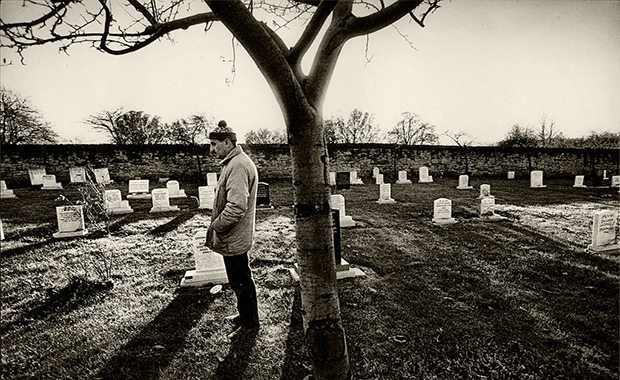Life
The Importance of Knowing Your Own Mortality

In these sporadic times it’s easier than ever to postpone the future. We push back our personal goals and front load trivial activities. Instead of enjoying the moments we have, we fast forward through them like an uninteresting video. We don’t make time for our loved ones and we chalk it up to our busy schedules.
Unfortunately, this is the case for many individuals who are not truly aware of the fragility of life. How precious the time we have is, and how little we have left. Now we may have been to a funeral and understand the concept of death, but we don’t truly have a grasp on the scarcity of these fleeting moments. It’s a surface comprehension but not one that truly stirs your emotions and makes you take action.
“Happiness, not in another place but this place…not for another hour, but this hour.” – Walt Whitman
The more in tune we become with our mortality, the more apt we are to making this time count. We know that our time is precious and not something to be squandered. Trivial things like entertainment take a back seat while we make moves that truly matter.
Given our finite timeline we must make an effort to cut through the many distractions of life and prioritize things of importance. Guarding our time like a silent guardian only to relinquish these moments to activities of substance.
Rather than giving in to those eager to pull you away from your mission you must stand with a steadfast resolve forever pushing towards your goals in an unrelenting fashion. Taking each day more seriously than the last as our internal timers continue to dwindle.
It’s only with this stoic mindset do we truly grasp the urgency of how we should live our lives. It’s not a welcoming subject and the thought of death scares most people, but after serving in the military you come to grips with reality of your daily situation.
“Write it on your heart that every day is the best day in the year.” – Ralph Waldo Emerson
A grim reminder that there are no respawns and there are no mulligans. It’s not something to shy away from but rather embrace in order to magnify the importance of this very moment. With this, your loved ones are elevated to their proper position and embraced like never before. Let’s understand that together we can make the most of today while we build a better tomorrow.
Together let’s find the importance of our work and acknowledge our own mortality. Let’s not be afraid of the hands of time but use them to gauge the significance of what we do. Let’s do it together, let’s do it boldly, and do it in such a way that one lifetime is enough.
What are you doing today to make sure to take advantage of the life that you have? Leave your thoughts below!
Life
Why Moving to a New City Can Change Your Mindset
Discover how moving to a new city boosts neuroplasticity, builds resilience, and reshapes your mindset

Relocation is always a challenge. Rebuilding and restarting your life requires you to step outside of your comfort zone. (more…)
Change Your Mindset
The Hidden Reason You Can’t Stay Consistent
If motivation keeps failing you, the real issue isn’t discipline. It’s the identity shaping your habits and long-term success.

Success often looks like a time-management problem. You buy a planner, set reminders, and hope that next week will be different. For a few days, it works. Then stress hits, motivation drops, and old patterns return. (more…)
Did You Know
How Skilled Migrants Are Building Successful Careers After Moving Countries
Behind every successful skilled migrant career is a mix of resilience, strategy, and navigating systems built for locals.

Moving to a new country for work is exciting, but it can also be unnerving. Skilled migrants leave behind familiar systems, networks, and support to pursue better job opportunities and a better future for their families. (more…)
-

 Business4 weeks ago
Business4 weeks agoEntrepreneur’s Guide to Pay Stubs: Why Freelancers and Small Business Owners Need a Smart Generator
-

 Business4 weeks ago
Business4 weeks agoThe Salary Shift Giving UK Employers An Unexpected Edge
-

 Scale Your Business4 weeks ago
Scale Your Business4 weeks ago5 Real Ways to Grow Your User Base Fast
-

 Business4 weeks ago
Business4 weeks agoThe Simple Security Stack Every Online Business Needs
-

 Finances4 weeks ago
Finances4 weeks agoWhy Financial Stress Is One of the Biggest Barriers to Personal Growth
-

 Business3 weeks ago
Business3 weeks agoWhy Entrepreneurs Should Care About AI Automation Testing
-

 Business3 weeks ago
Business3 weeks agoWhy Smart FMCG Entrepreneurs Outsource What They Can’t Automate
-

 Business3 weeks ago
Business3 weeks agoWhat Every Business Owner Should Know Before Investing in API Integration





























